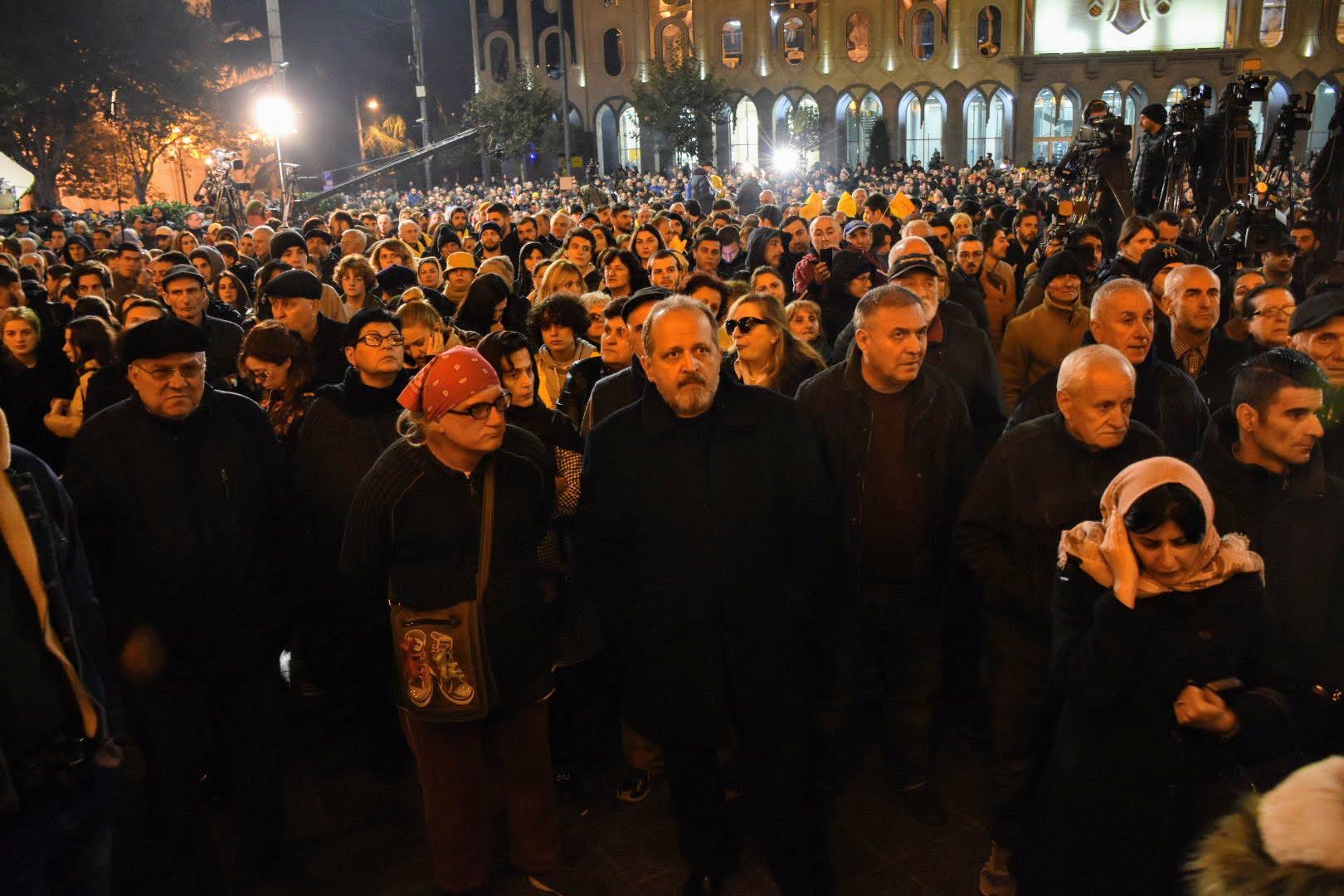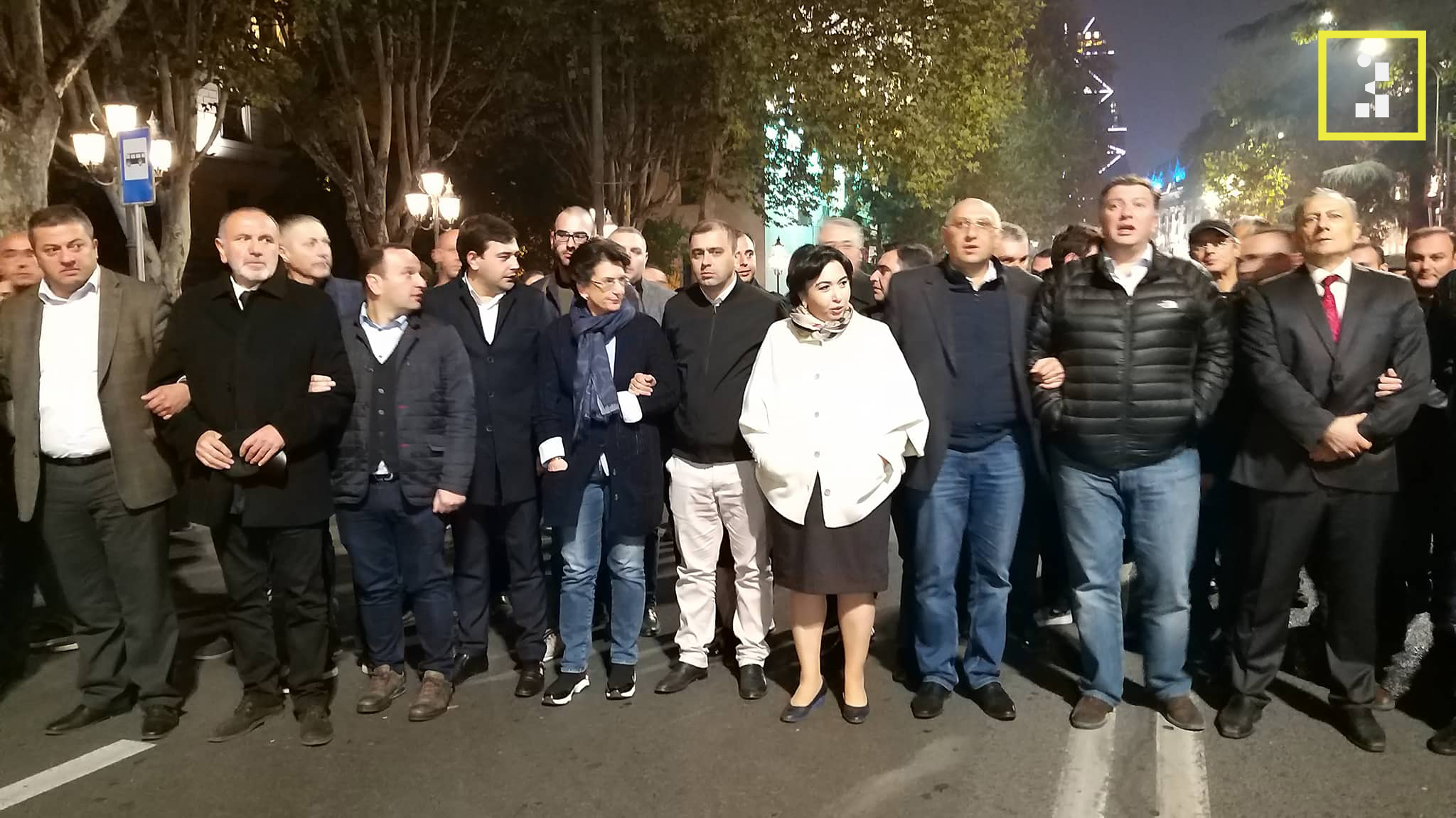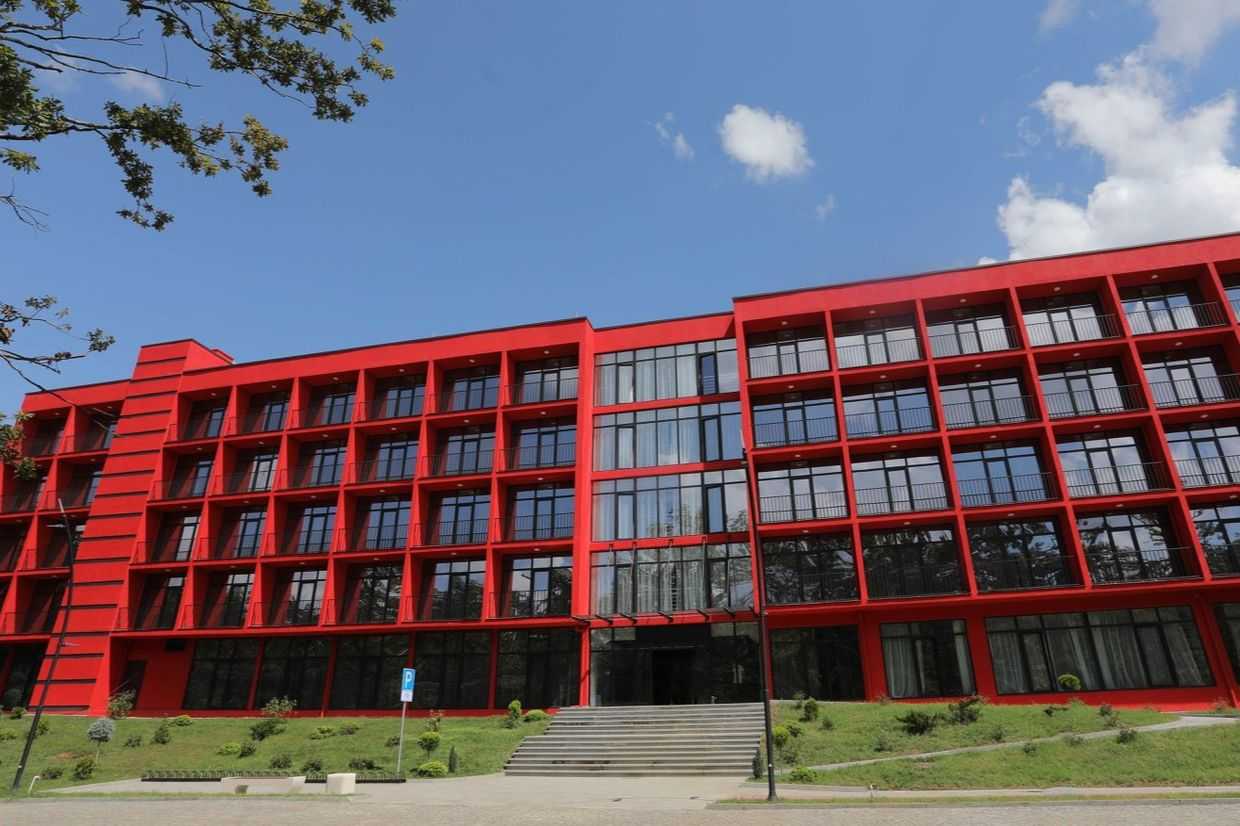

Twelve Georgian Dream MPs have now left the ruling party after their colleagues voted down an electoral reform package promised to protesters five months ago.
Among those to abandon Georgian Dream since yesterday’s vote in parliament are two deputy speakers and the chairs of the EU integration, foreign affairs, and education committees.
Three members of the party’s Conservatives faction, including faction leader Giga Bukia, announced their departure from Georgian Dream on Friday.
[Read more on OC Media: Georgian Dream MPs block switch to fully proportional electoral system]
A transition to a fully-proportional electoral system has long been advocated for by most opposition parties and major civil society organisations in the country. It was also a key concession by the government after thousands took to the streets in June.
June’s protests were sparked by a Russian MP being invited to speak in parliament and the subsequent violent dispersal of the initial demonstration.
Proportional elections were already due to come in for 2024 parliamentary elections following 2018 constitutional amendments.
However, on the fourth day of anti-government protests in June, Georgian Dream chair Bidzina Ivanishvili promised the changes would come into force, with no electoral threshold for parties, in time for 2020’s parliamentary elections.
By July, advocates of the change had already begun to express concern that the ruling party might go back on their promise.
After convening with other party leaders on 15 November, Parliamentary Speaker Archil Talakvadze told journalists that preserving the current electoral system ‘was not the end of the world’. He vowed that the October 2020 parliamentary vote would be held in a ‘democratic’ and fair’ manner.
Talakvadze urged the opposition not to blame their lack of MPs on the electoral system. However, Georgian Dream themselves have been losing MPs for several years.
As a coalition, the ruling party lost the Republicans, Free Democrats (led by Irakli Alasania), the National Forum and other allies before the 2016 parliamentary elections, but still succeeded in securing a constitutional majority.
Georgian Dream sustained further losses, ultimately losing its constitutional majority in February after several MPs left over the party’s planned supreme court justice appointments.
[Read more on OC Media: Georgian Dream loses constitutional majority as MPs leave party]
Prior to the latest departures, Georgian Dream still held 106 of 150 seats in the legislature, dropping to 94 on Friday.
In a statement following the vote, Ivanishvili said he was ‘sincerely sorry’ for the outcome and that he had failed to convince his majoritarian MPs to vote otherwise.
Ivanishvili and other party members also blamed the opposition for disrespecting Georgian Dream MPs on the eve of the vote. However, since the announcement in June, a number of lawmakers in Ivanishvili’s party elected in majoritarian districts have been vocal against the initiative.
Prime Minister Giorgi Gakharia did not comment on the vote.
Reaction to the vote
Protesters began gathering outside the parliament immediately after the vote. By evening, thousands had gathered blocking the central Rustaveli Avenue.
Addressing the protest, Giorgi Margvelashvili, the fourth President of Georgia and a former ally of Ivanishvili spoke out against the government.
‘I don’t want to return to politics but I also refuse to live in a dictatorship’, he said.
Another former Ivanishvili ally, former Prime Minister Giorgi Kvirikashvili, also denounced the decision on Facebook the same day, calling it ‘another step’ towards the government losing its legitimacy.
After marching to Ivanishvili’s residence, a small group of protesters spent the night in tents outside parliament, blocking movement on Rustaveli Avenue. They continued their ‘non-stop protest’ on Friday.
A campsite blocks the road outside #Georgia‘s parliament this morning after ruling party MPs failed to pass the promised electoral reform yesterday. pic.twitter.com/XdVKjZXAon
— Robin Fabbro (@RobinFabbro) November 15, 2019
As crowds gathered outside the parliament, a large number of parliamentary and non-parliamentary opposition leaders gathered to coordinate their response.
The talks, held at the office of the Georgian Labour Party, included a wide range of political figures.
These included the United National Movement (UNM) and other parties within their Strength in Unity coalition, liberal parties European Georgia and the Republicans, right-libertarian party Girchi, Nino Burjanadze’s Democratic Movement, as well as MP Eka Beselia and other former allies of Ivanishvili.
Following the consultations, they joined crowds on Rustaveli Avenue downplaying their ‘ideological’ differences and insisting it was ‘all against one [Ivanishvili and Georgian Dream]’.

Opposition leaders gathered for consultations at the Labour Party office again on Friday.
Several announced that they were united in demanding snap parliamentary elections with a fully proportional system, to be held under an interim government.
The Alliance of Patriots, a socially conservative parliamentary group advocating for Georgia’s military neutrality, also reprimanded Georgian Dream for not supporting the promised bill, but indicated they would mobilise separately.
Both the larger opposition block and the Alliance of Patriots announced they would rally crowds in Tbilisi on Sunday.
On 15 November, 29 local rights groups and individual activists penned an open appeal to the Party of European Socialists to ‘have a strong reaction’ against their the Georgian Dream Party for ‘oligarch’ Ivanishvili’s ‘state capture’ in Georgia.
Georgian Dream is an observing member of the Party of European Socialists, a major bloc in the European Parliament.
International condemnation
After Georgian Dream MPs voted the bill down on 14 November, the US Embassy in Georgia expressed ‘disappointment’ and insisted on the ‘critical importance’ of electoral reforms.
Titus Corlatean and Claude Kern, the Parliamentary Assembly of the Council of Europe (PACE) co-rapporteurs for monitoring Georgia, also weighed in later that day, calling the failure to pass the bill ‘incomprehensible’ and ‘a step backwards’.
‘We deplore the lack of support for these amendments’.
Following a meeting with Bidzina Ivanishvili on 15 November, Carl Hartzell, the EU Ambassador to Georgia, told journalists that the previous day’s vote threatened to ‘raise polarisation’ in Georgia.
Before the Thursday vote, he noted that Georgian Dream making a u-turn on their earlier commitment ‘would be seen as breaking the trust among the political parties, the trust with wider segments of the population’.
On Friday, Hartzell also met parliamentary speaker Archil Talakvadze and opposition leaders.
In a statement on 14 November, US Congressman and a co-chair of the House Georgia Caucus Adam Kinzinger called on Georgia’s leadership to pass the electoral reform bill.
Shocked & disappointed by Georgia Parliament’s downvote on moving to a proportional election system. The Georgian people deserve better. Failure to pass this important reform will destroy the progress Georgia has made in securing its independence. https://t.co/XH2DVkA5lp
— Adam Kinzinger (@RepKinzinger) November 14, 2019
‘Failure to deliver this constitutional amendment will be a gift for Vladimir Putin, and will destroy the progress Georgia has made to reach complete independence and separation from an aggressive, encroaching neighbour in Russia’, Kinzinger’s statement read.
What a proportional system would mean for Georgia
In Georgia’s current single-chamber parliament of 150 members, 77 MPs are elected with a proportional system from party lists while the remaining 73 are elected as party members or independent candidates through single-member (‘majoritarian’) electoral constituencies.
In the majoritarian voting system, a candidate wins their seat when they obtain more than 50% of votes, either in an initial vote or a run-off. Hence, a potentially large number of voters casting their ballots for those losing even marginally (e.g. with 49%) receive no representation.
Critics insist this causes a discrepancy between the political mandate in the legislature and the proportion of actual votes cast.









